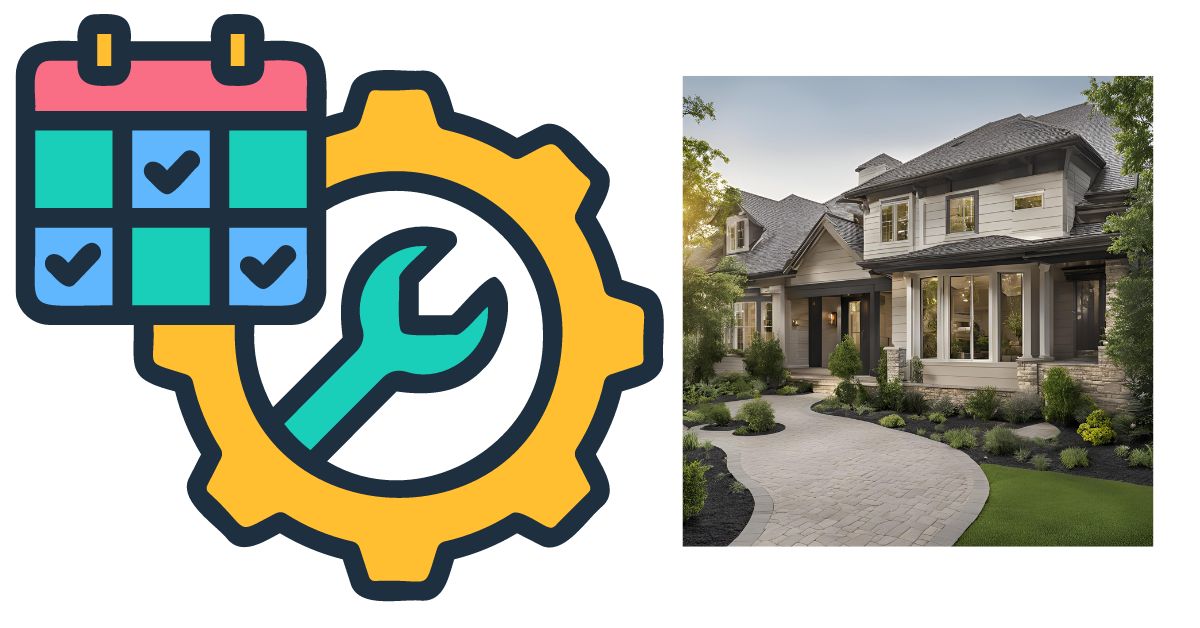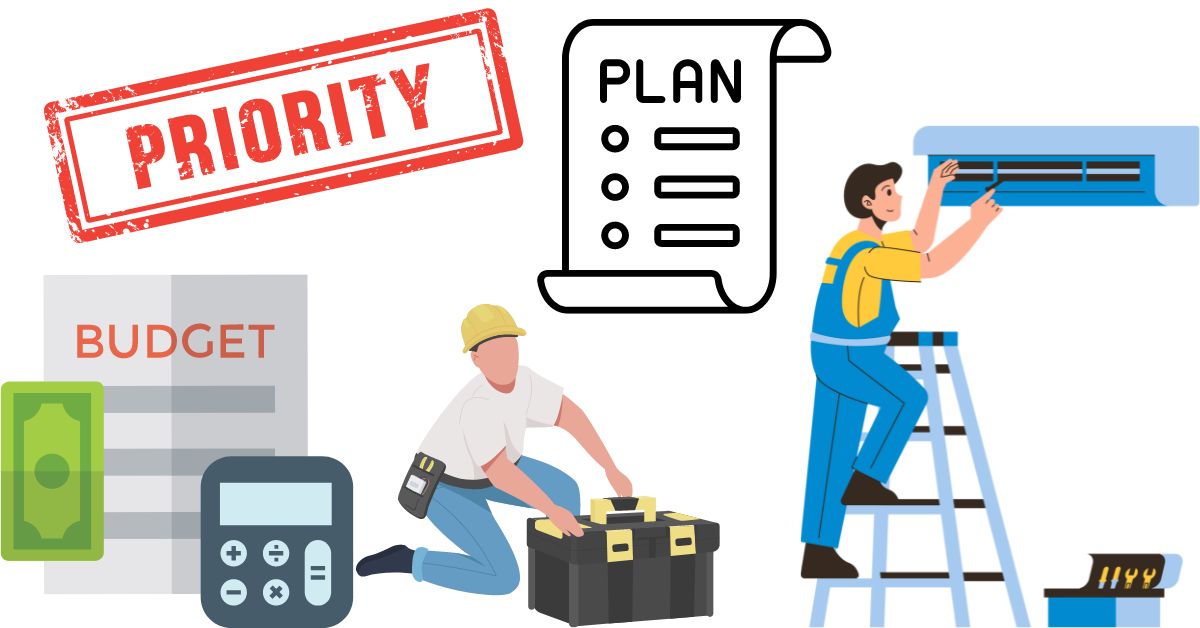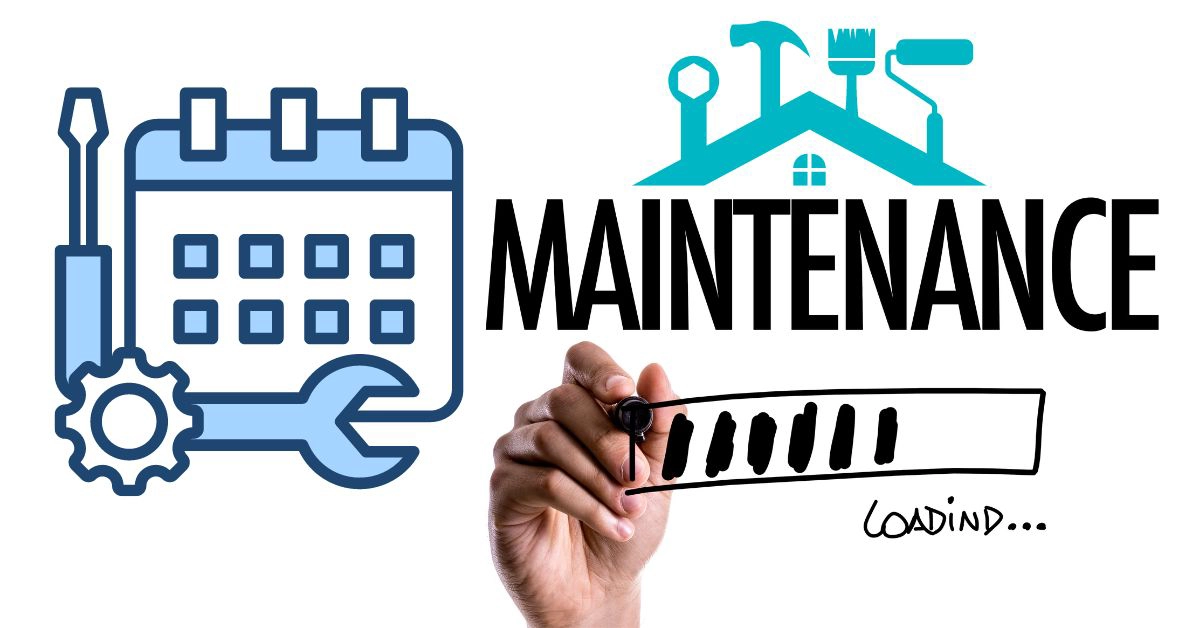Owning a property can be a rewarding investment. However, it comes with its own set of challenges.
One of these challenges is property maintenance. It's a crucial aspect that can significantly impact the profitability and stress-free experience of property ownership.
This is where a property maintenance schedule comes into play. It's a strategic tool that can transform your property management experience.
Whether you're a seasoned real estate investor or a first-time property owner, this guide will offer valuable insights. It will help you enhance tenant satisfaction, ensure compliance with local laws, and maintain a profitable property.
Let's make your property ownership journey a stress-free and rewarding experience.
Understanding the Importance of a Property Maintenance Schedule
A property maintenance schedule is more than just a list of tasks. It's a strategic plan that ensures the longevity and value of your property.
By adhering to a well-planned schedule, you can prevent unexpected repairs and costs. This contributes to stress-free ownership and enhances the desirability of your property. It's a proactive approach that pays off in the long run.

Regular maintenance significantly impacts tenant satisfaction. A well-maintained property signals to tenants that their comfort and safety are a priority. This can lead to higher tenant retention rates, reducing the costs and hassles associated with tenant turnover.
Moreover, a well-maintained property preserves and even enhances its value. Regular upkeep prevents minor issues from escalating into major, costly repairs. It also ensures that the property remains attractive and competitive in the rental market, potentially commanding higher rental rates.
Steps to Develop a Tailored Property Maintenance Schedule
Creating a property maintenance schedule requires a thorough understanding of your property's specific needs. It's not a one-size-fits-all process. Instead, it should be tailored to the unique features and requirements of your property.
.jpg)
Here are some steps to guide you in developing a property maintenance schedule:
- Assess your property's specific needs
- Incorporate seasonal maintenance tasks
- Conduct regular inspections and implement preventive measures
Assessing Your Property's Specific Needs
Start by conducting a comprehensive assessment of your property. Identify its unique features and requirements. For instance, a property with a swimming pool will have different maintenance needs compared to one without.
Consider the age of your property as well. Older properties may require more frequent maintenance and inspections to prevent deterioration and ensure safety.
Incorporating Seasonal Maintenance Tasks
Seasonal maintenance tasks are crucial in a property maintenance schedule. These tasks vary depending on the time of the year and the local climate. For instance, in Atlanta, you may need to schedule HVAC maintenance in spring to prepare for the summer heat.
Also, consider tasks like gutter cleaning in fall and roof inspections before the winter season. These tasks help prevent damage caused by seasonal weather conditions.
Regular Inspections and Preventive Measures
Regular inspections are a key component of a property maintenance schedule. They help identify potential issues before they escalate into major problems. For instance, regular plumbing inspections can detect leaks early, preventing water damage and costly repairs.
Preventive measures, on the other hand, help prolong the lifespan of property features. For example, regular cleaning of HVAC systems can improve their efficiency and prevent premature breakdowns.
Prioritizing Maintenance Tasks and Budgeting
Once you have a list of maintenance tasks, the next step is to prioritize them. Some tasks are more urgent than others. For instance, fixing a leaking roof is more urgent than repainting the exterior walls.

Budgeting is also crucial in property maintenance planning. It helps ensure that you have sufficient funds to cover both routine maintenance and unexpected repairs.
Creating a Maintenance Fund
A maintenance fund is a financial safety net for property owners. It's a dedicated account where you set aside money specifically for property maintenance.
Having a maintenance fund can help you manage costs effectively. It ensures that you have the financial resources to address maintenance issues promptly, preventing minor issues from escalating into costly repairs.
Selecting Reliable Contractors
Choosing the right contractors is crucial in property maintenance. Reliable contractors deliver quality work, helping you preserve and enhance your property's value.
Consider factors like experience, reputation, and licensing when selecting contractors. Also, establish long-term relationships with contractors you trust. This can lead to better service and potentially cost savings in the long run.
Leveraging Technology for Maintenance Management
In today's digital age, technology can greatly simplify property maintenance management. It can help you track maintenance tasks, manage budgets, and communicate with tenants and contractors.
.jpg)
Moreover, technology can provide valuable data for decision-making. For instance, it can help you identify recurring issues, assess the effectiveness of your maintenance strategies, and plan for future upgrades.
Property Management Software Solutions
Property management software is a powerful tool for managing maintenance schedules. It can automate many tasks, saving you time and reducing the risk of errors.
For example, software can send reminders for upcoming maintenance tasks, track expenses, and generate reports. Some solutions even offer features like tenant portals for submitting maintenance requests, making communication more efficient.
Communication Strategies with Tenants
Effective communication with tenants is crucial in property maintenance. It helps ensure that tenants are aware of scheduled maintenance and can prepare accordingly.
Moreover, open communication channels can encourage tenants to report minor issues before they escalate. This proactive approach can save you time and money in the long run, and contribute to tenant satisfaction and retention.
The Role of Professional Property Management

Professional property management can be a game-changer for property owners and investors. These experts bring a wealth of experience and knowledge to the table, ensuring that your property is maintained to the highest standards.
They can handle everything from routine maintenance to emergency repairs, freeing you from the stress and complexities of property management. This allows you to focus on your investment strategy, while they take care of the day-to-day operations.
Case Studies: Successful Maintenance Schedules
Let's consider a case study of a property owner in Atlanta who hired a professional property management company. The company implemented a comprehensive maintenance schedule, which resulted in a significant decrease in emergency repairs and costs.
In another instance, a real estate investor with multiple properties saw an increase in tenant retention after a professional property management company took over. The company's proactive maintenance approach and excellent communication with tenants led to higher tenant satisfaction and fewer vacancies. These case studies highlight the tangible benefits of a well-executed property maintenance schedule.
Conclusion: The Path to Stress-Free Property Ownership
Creating a property maintenance schedule is a crucial step towards stress-free property ownership. It not only ensures the longevity of your property but also enhances tenant satisfaction and retention.
By leveraging professional property management services, you can further streamline this process. Their expertise in maintenance planning and execution can transform your property ownership experience, making it profitable and hassle-free. Remember, a well-maintained property is a profitable property.


